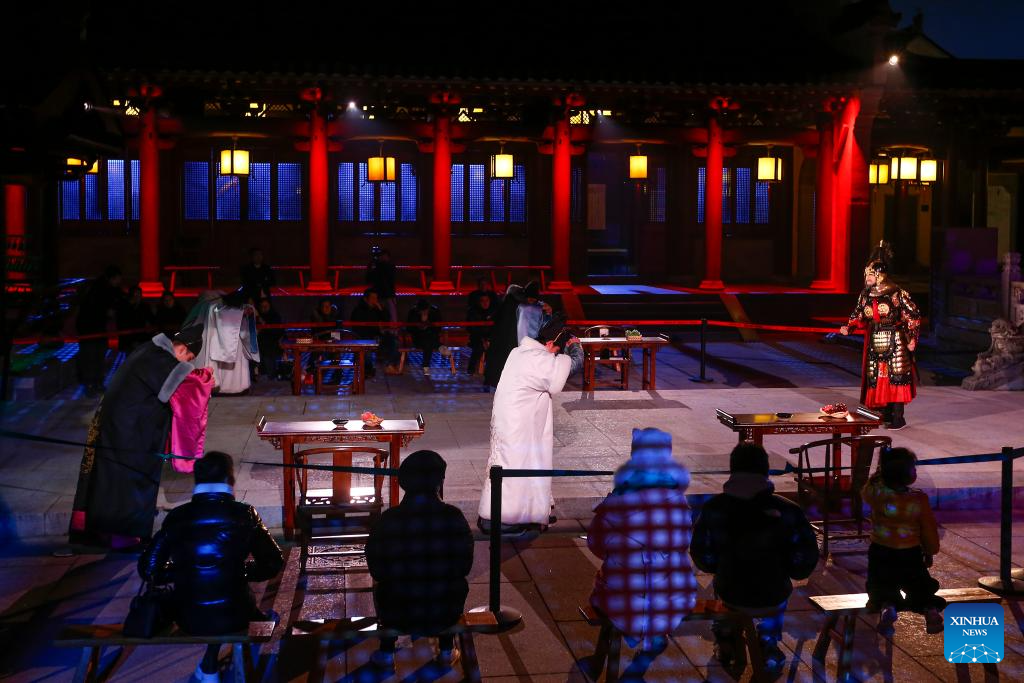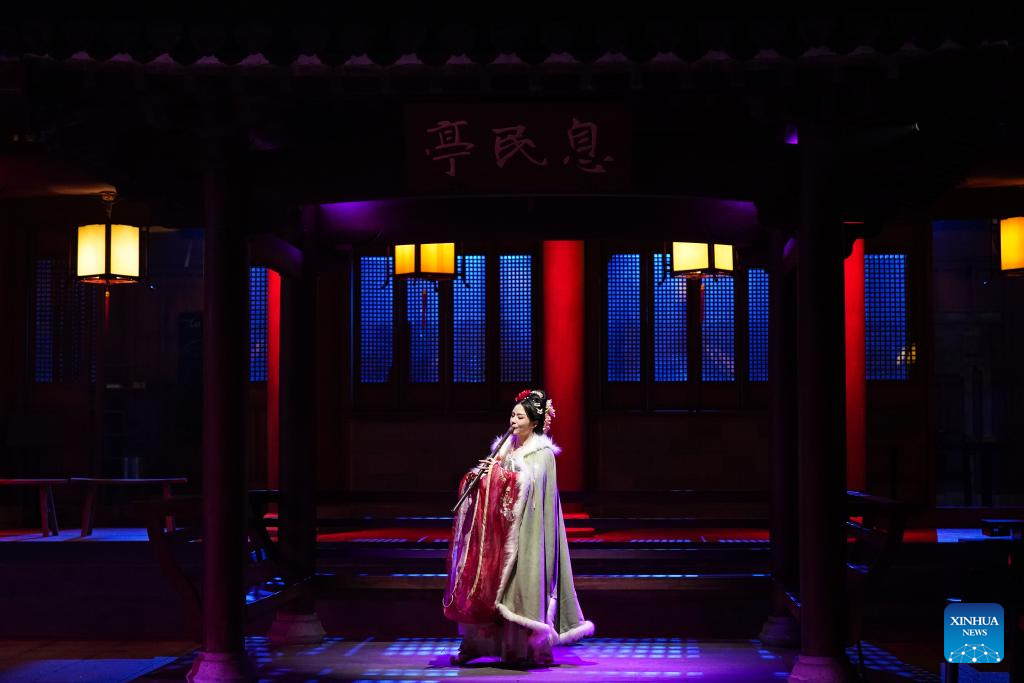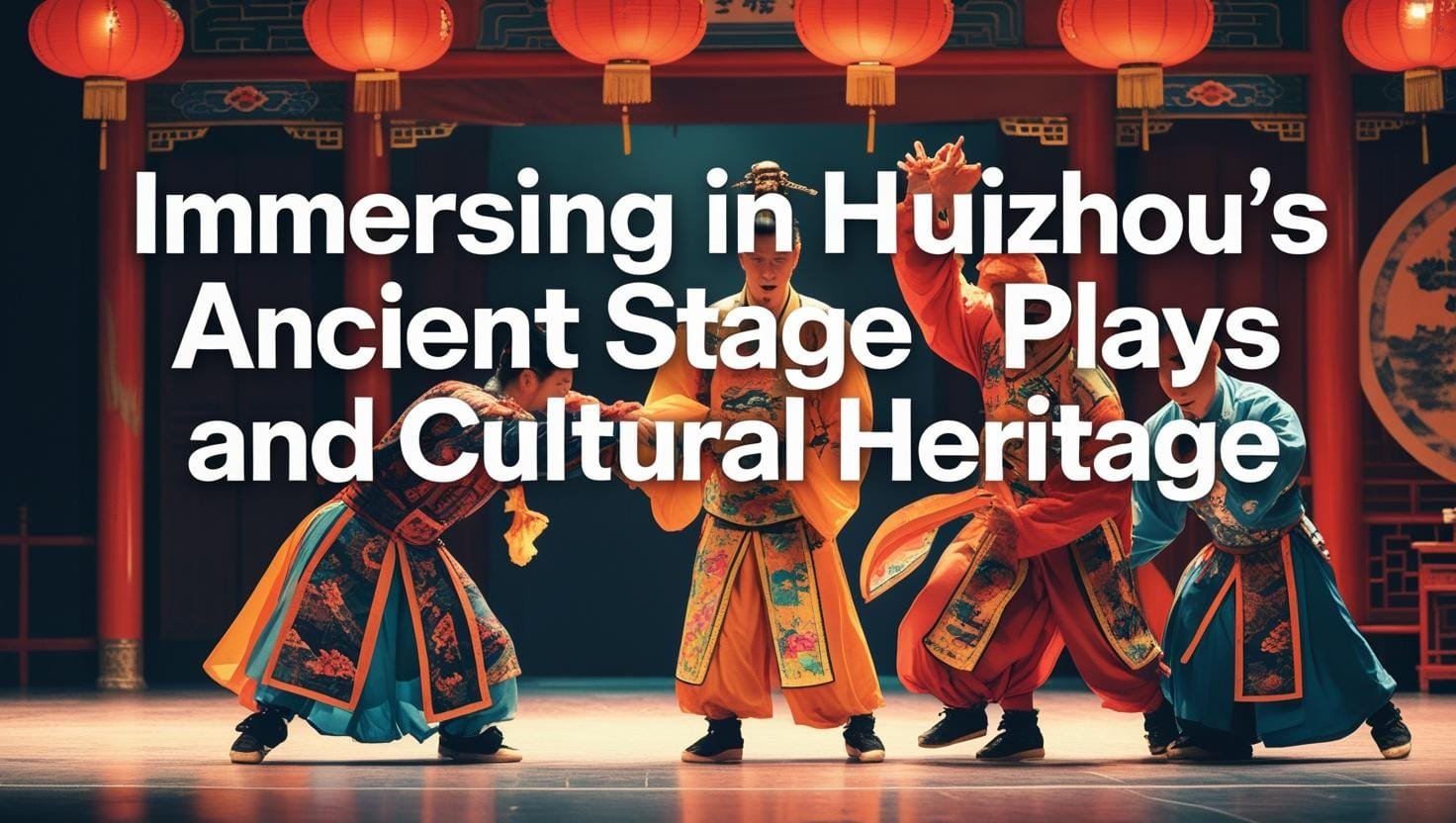Immersing in Huizhou’s Ancient Stage Plays and Cultural Heritage

Welcome to the enchanting world of Huizhou, where ancient traditions come alive through captivating performances and timeless rituals. If you’re a traveler eager to dive into China’s theatrical history, Huizhou offers an unforgettable journey into its vibrant cultural tapestry. Here at jusha.travel, we love sharing tips to make your China adventure unforgettable, and today, we’re spotlighting Huizhou ancient stage plays and the broader Huizhou cultural heritage. Whether you’re planning a Huizhou travel guide-worthy trip or seeking China cultural tours, this exploration will inspire you to experience the magic of these age-old arts firsthand.
Huizhou, nestled in Anhui Province, is a treasure trove of history, where stage plays have been more than entertainment—they’re a window into the soul of Chinese society. Imagine stepping into a world where dramatic performances blend folklore, music, and spirituality, drawing from centuries of evolution. We’ll guide you through the highlights, offering practical tips and cultural insights to enhance your visit, all while weaving in the essence of Huizhou ancient stage plays and its role in cultural attractions in Huizhou.
The Historical Roots of Huizhou Stage Plays

To truly appreciate Huizhou ancient stage plays, we must first journey back to their origins. Huizhou has long been a cradle of Chinese performing arts, with helpful from centuries of evolution. We’ll guide you through the highlights, offering practical tips and cultural insights to enhance your visit, all while weaving in the essence of Huizhou ancient stage plays and its role in cultural attractions in Huizhou.
The Historical Roots of Huizhou Stage Plays

To truly appreciate Huizhou ancient stage plays, we must first journey back to their origins. Huizhou has long been a cradle of Chinese performing arts, with roots extending to the ancient Zhou dynasty, where ritualistic dances and dramas played a pivotal role in courtly and folk life. According to reliable sources like the Theatre of China on Wikipedia, early forms of theater evolved from shamanistic performances, blending music, dance, and storytelling to convey moral lessons and celebrate community bonds.
In Huizhou, these traditions flourished during the Qing dynasty, giving rise to distinctive regional styles that parallel the broader narrative of China’s theatrical history. Huizhou opera, or Huiju, emerged as a local gem, influenced by the area’s rural landscapes and mercantile heritage. This form of theater isn’t just about spectacle; it’s a reflection of Huizhou cultural heritage, where stories of heroes, gods, and everyday life were performed on simple stages in ancestral halls or village squares.
For travelers, this historical depth adds immense value to your Huizhou travel guide. A practical tip: Visit the ancient stages in She County, where you can witness remnants of these performances. If you’re traveling with family, consider timing your trip with local festivals—many incorporate re-enactments that bring history to life. And don’t forget, China’s rich cultural evolution means these plays often incorporate elements of technology today, like modern lighting or digital projections, making them accessible to contemporary audiences.
Defining Features of Huizhou Opera (Huiju)

What sets Huizhou ancient stage plays apart are their unique characteristics, making them a highlight among cultural attractions in Huizhou. Huiju, as it’s locally known, features lively vocal music, intricate martial arts choreography, and a blend of regional dialects that add authenticity to every performance. Unlike the more polished Peking opera, Huiju retains a rustic charm, mirroring the agricultural roots of Anhui Province and incorporating symbolic costumes and makeup that tell stories without words.
Drawing from the World Encyclopedia of Puppetry Arts on WEPA, Huiju’s repertoire often includes historical tales, Confucian morality plays, and mythological epics, all interwoven with expressive gestures and melodic singing. This style not only entertains but also educates, offering insights into Chinese values like harmony and filial piety. For culture enthusiasts, it’s fascinating to note how these elements tie into broader China cultural tours, where theater serves as a bridge to understanding the nation’s philosophical underpinnings.
If you’re planning a trip, here’s a handy tip: Attend a Huiju performance at venues like Tunxi Old Street, where shows are often held in the evenings. To make it more immersive, participate in a costume workshop—many local guides offer these experiences, allowing you to don traditional attire and learn basic gestures. Food lovers might appreciate pairing this with a local meal; Huizhou’s cuisine, featuring dishes like stewed duck with its bold flavors, complements the dramatic energy of the plays. Plus, with China’s tech advancements, some modern adaptations use augmented reality apps to enhance your viewing, blending Huizhou cultural heritage with innovative tools for a truly modern twist.
Key Stage Traditions and Rituals

Delving deeper into Huizhou ancient stage plays, we uncover the rituals and traditions that make them so spiritually significant. In traditional Huizhou villages, performances often take place on open-air stages within temples or ancestral halls, linking theater to seasonal festivals and religious rites. These settings underscore a profound connection to the spirit world, where plays are believed to bring good fortune, heal communities, or honor ancestors—a practice rooted in ancient Chinese beliefs.
As highlighted in resources such as the study on the evolution of classical Chinese theater, Huizhou’s stage conventions emphasize harmony between humans and nature, with elements like puppetry playing a key role. Puppet shows, a staple in Huizhou, mirror the stylization of Huiju and are featured in events like funerals or harvest celebrations, adding layers to the cultural narrative.
For travelers on a China cultural tour, this is an opportunity to engage meaningfully. An interesting fact: Many performances incorporate audience participation, where spectators might join in chants or rituals, fostering a sense of community. If you’re curious about technology’s role, some Huizhou troupes now use digital archiving to preserve these traditions, allowing virtual tours via apps—perfect for blending old and new. Don’t miss trying local snacks like sesame seed cakes during intermissions; they’re a delightful way to experience Huizhou’s food culture alongside the arts.
Cultivating Cultural Heritage: Modern Revival and Preservation
Finally, the enduring appeal of Huizhou cultural heritage lies in ongoing efforts to preserve and revive its ated arts. In recent decades, government-supported initiatives and community programs have breathed new life into Huiju, ensuring that Huizhou ancient stage plays remain relevant amid China’s rapid modernization. Drawing from Theatre of China resources, these revivals involve updating scripts with contemporary themes while maintaining core traditions, such as training young performers in classic techniques.
This preservation work has turned Huizhou into a prime destination for cultural attractions in Huizhou, with festivals showcasing restored plays and interactive exhibits. A practical tip for visitors: Join a heritage walk in historic sites like Yi County, where you can learnazı about the role of theater in daily life and even volunteer for conservation projects. It’s heartwarming to see how these efforts align with broader China travel trends, where technology, like VR experiences, helps document and share intangible heritage globally.
In conclusion, immersing yourself in Huizhou ancient stage plays and its rich Huizhou cultural heritage offers a profound glimpse into China’s theatrical history. From the historical roots to modern revivals, these experiences not only entertain but also deepen your appreciation for China’s diverse traditions. Whether you’re crafting your own Huizhou travel guide or joining organized China cultural tours, you’ll leave with lasting memories and stories to share.
Here at jusha.travel, we’re passionate about guiding you through these cultural wonders. We encourage you to share your thoughts in the comments below, visit jusha.travel for more inspiring articles on China travel, or explore related posts like our guides to other regional arts. What’s your favorite cultural experience in China? Let’s keep the conversation going—safe travels!

